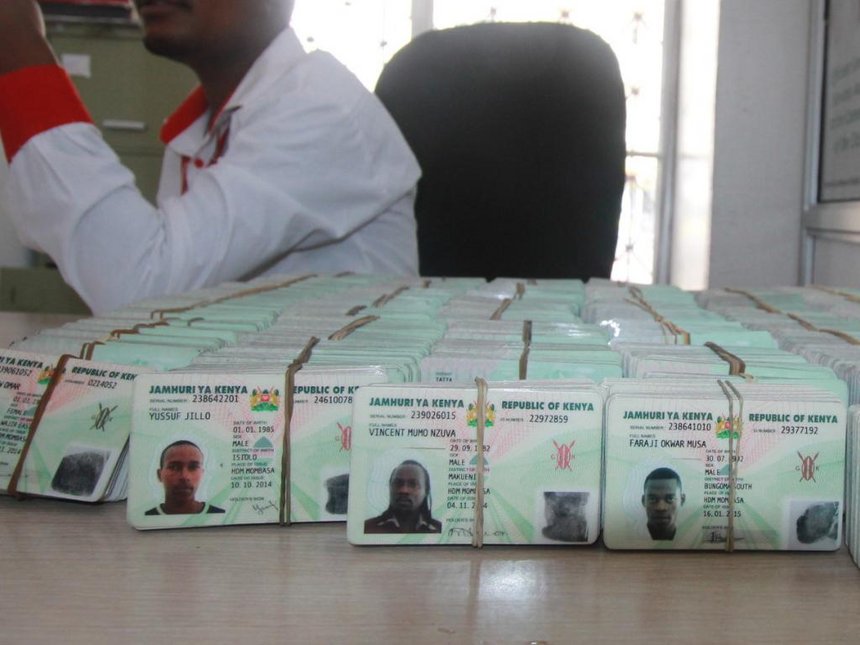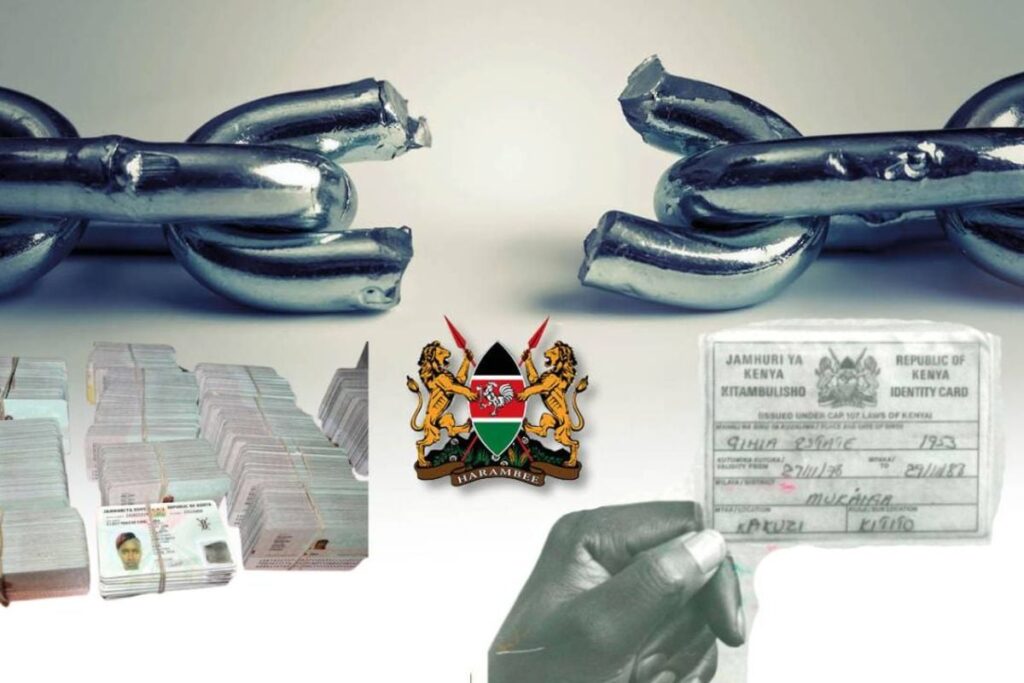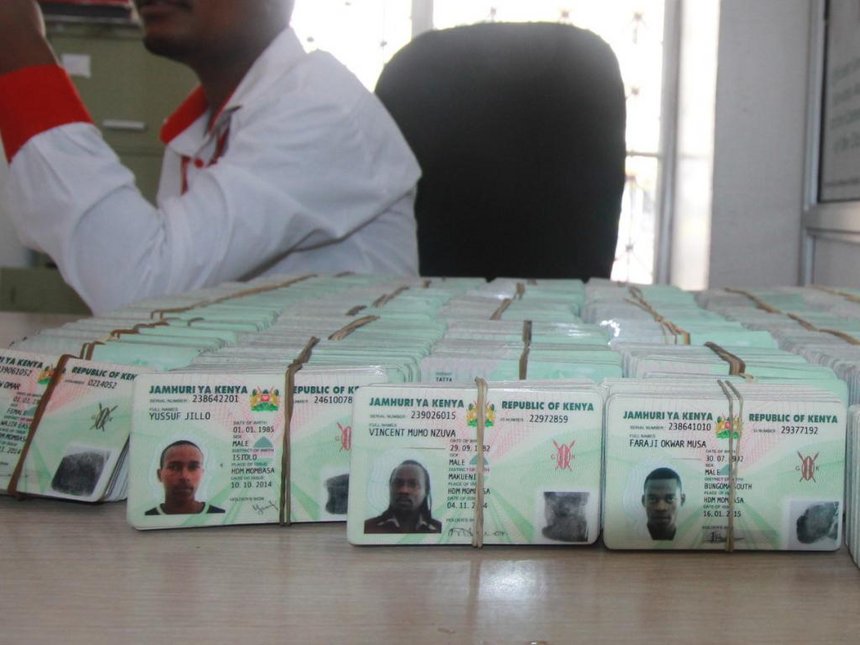
Over half a million Kenyans are caught in a bureaucratic limbo amidst a legal standoff affecting the issuance of national ID cards, impacting their daily life and various administrative processes.
Residents living in Kajiado county are complaining of Unfair issuance of National Identification card(ID) to their children, officials demanding presentation of valid land title deeds.
In a meeting at Kitengela over the weekend,Kajiado residents claimed that it was a well-Orchestrated scheme to depreve non-locals of their rights and deny them employment opportunites especially in county jobs.
According to them they claim that the scheme might have been hatched by some of the local administrators.
Most of the affected areas are Kiserian,Ongata Rongai,Isinya Kitengela and large part of Ngong.

Addressing the media Ms Jane Wangari,65,said her three childen were forced to register as Muranga residents despite being born and raised in Kajiado county,She said she was suprised with how the workers at huduma center are behaving despite living over 35year in Kajiado.
“My kids don’t know anyone in my ancesterial home,they have been born and raised here in Kajiado.I myself have been married here but my ID steal reads i was born in Muranga which is okay ,but my kids are born and raised in kajiado and their ID reads born in Muranga whichi is a lie,”She said.
Another Resident Mr John Mutua was also in pain explaining how he was forced to travel to Makueni, his county of birth, to register his son for a national identity card.
“This country is full of triblisim and corruption.Was it neccesary for me to travel all that way just to regester my son? They build this centers to take care of kenyans and not specific people,”He said.
Also Mr Samson Kamau Kimunge said the title deed requirement was discriminatory.
“We know that a title deed is not one of the requirements for applying for ID cards. We are appealing to the national government to take action against the officials who are subjecting the locals to this pain,” said Mr Kamau.
A local cheif who spoke to Us in confidence said the title deed requirement was not a condition for applying for the new IDs. But he said he had received complaints from ID applicants.

“A title deed is not a requirement for new applicants. We have received such complaints, but our hands are tied,” he said, without elaborating.
At the Kitengela ID registration office on Monday, many young people were busy filling in application forms, knowing that they may not be registered as residents of Kajiado County, where they were born.
Officials at the registrar’s office declined to comment, saying they were not authorised to speak to the media and told media to talk to National Government.
In a significant crisis unfolding in Kenya, over 600,000 citizens find themselves in a bureaucratic limbo due to a contentious legal standoff affecting the issuance of national identification cards (IDs). The crisis has its roots in mid-November 2023, when the machines producing the nation’s second-generation IDs were shut down. A subsequent court order has put a halt on the production of the third-generation IDs, known as Maisha Cards, thereby deepening the crisis.
For the affected citizens, this interruption in ID issuance has ground critical aspects of daily life to a standstill. The lack of a valid ID prevents individuals from registering for mobile phone Sim cards, opening bank accounts, accessing higher education funding, and even obtaining employment. Furthermore, the ID is a prerequisite for various legal and administrative processes, such as posting bail or traveling abroad for specialized medical treatment.

